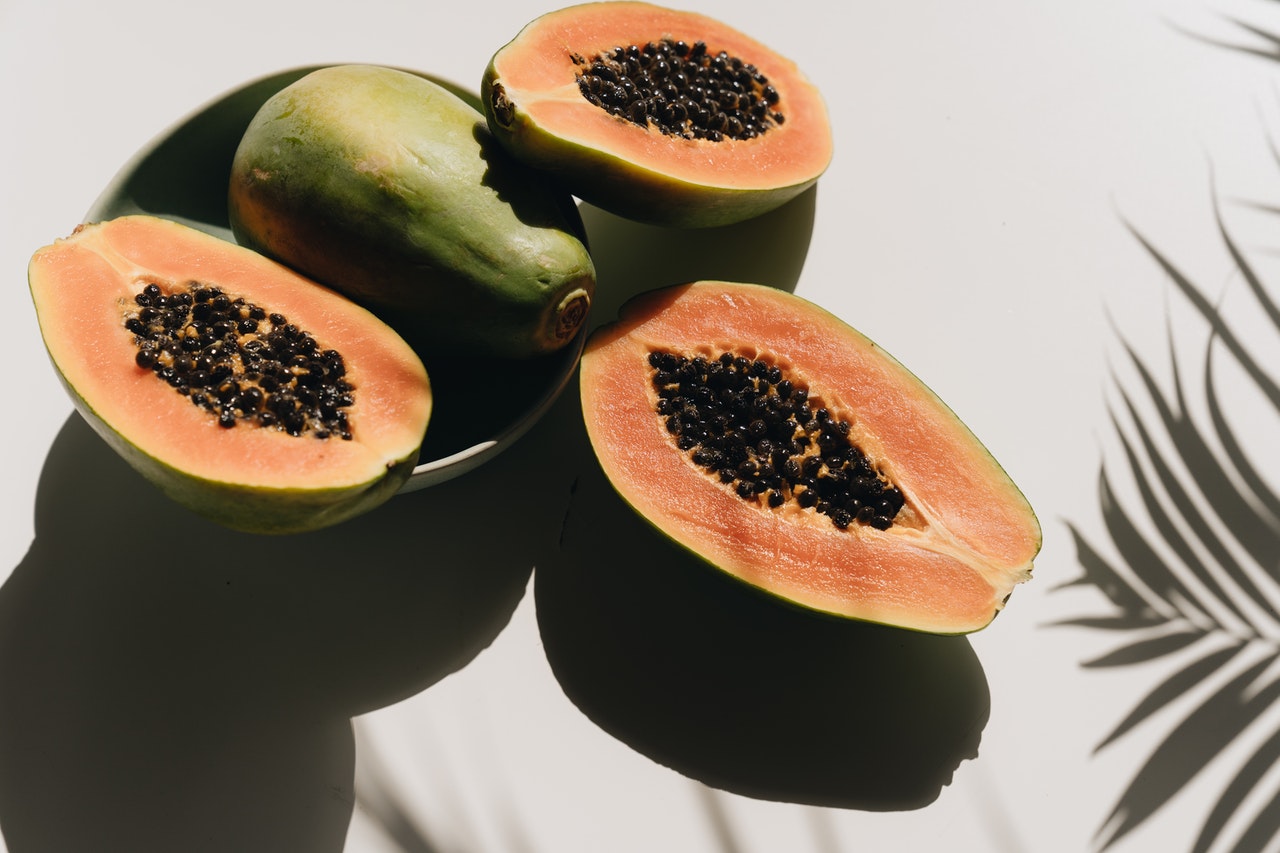If you’re dealing with digestion drama, there’s a good chance you’ve read a thing or two about digestive enzymes, which are often touted as the secret to optimizing your body’s ability to break down and absorb food. But if you want to try them out, you might not get a straight answer about exactly how to take them, where to buy them, or how they work.
Keep reading to have all your digestive enzyme questions answered.
Digestion 101: Why Enzymes Are Important
If you’re like most people, you think about what’s in your food a whole lot more than how your body breaks it down. Well, digestive enzymes are a big piece of that puzzle. These small proteins break down the food you eat into smaller pieces — pieces that are in the most convenient form for our body to absorb, utilize, and turn into energy. There are three main types of digestive enzymes, which just so happen to break down the three main macronutrients into smaller pieces:
- Lipases: These enzymes break down fats, from foods like avocado and olive oil, into smaller fatty acids that can be easily absorbed
- Proteases: These enzymes break down protein, from foods like chicken and eggs, to peptides and amino acids
- Amylases: These enzymes break down carbohydrates, from foods like potatoes and oats, into sugar molecules
While there are three main groups, there are a ton of different individual enzymes that are important enough to mention. A few of these include:
- Cellulase: This enzyme helps break down high-fiber plant-based foods
- Lactase: This enzymes helps break down lactose, which is found in dairy products
- Sucrase: This enzyme helps break down sucrose into glucose and fructose
The body produces these digestive enzymes all on its own; they’re present in the saliva, the stomach, and in the intestines.
Digestive Enzyme Supplements
You might be wondering why, if your body produces its own digestive enzymes, you would need to take a digestive enzyme supplement. Well, there are a few reasons, actually! The first would be if you have a food intolerance; for example, if you have a lactose intolerance, you might take a lactase enzyme to help digest the lactose found in milk and other dairy products. If you experience bloating or indigestion after eating beans, you might take Beano, an over-the-counter product that contains an enzyme that helps you break down a complex carbohydrate found in beans, some vegetables, and whole grains.
It’s also possible that you simply don’t make enough digestive enzymes. This can slow digestion and lead to uncomfortable symptoms like bloating, cramping, and gas no matter what you try to eat. This is not uncommon, especially in people who are over 50, have low stomach acid, or you have IBS or IBD.
The good news is that there are plenty of digestive enzyme supplements out there. The enzymes in these supplements can come from animal sources or from plants like fruits, molds, yeast, and fungi. Certain foods, like pineapples, papayas, avocados, and ginger have natural digestive enzymes in them.
When to Take Digestive Enzymes
If you struggle with gut health issues, digestive enzymes may play a role in correcting them but they are not the end all be all. In fact, as a first line of defense, I always recommend switching to a mostly-plant based diet. Doing this can help restore your gut microbiome, heal leaky gut, and kill candida overgrowth that are likely the underlying cause of your digestive issues. Now the smartest route is to always remove the trigger of your digestive issues, instead of trying to mitigate the damage once you’ve eaten the problem food. This is an important point: True health starts with healthy nutrition — you can’t digestive enzyme your way out of a poor diet!
If you’re still experiencing digestive issues after at least a month eating a clean, whole foods diet, I might recommend taking digestive enzymes with your meals, especially larger meals, to help your body break down your food and absorb nutrients. If you’re shopping for digestive enzymes, make sure to buy an “enzyme blend” instead of a supplement with just one or two enzymes; that way, you can cover your bases and get general digestive support.
At the end of the day, digestive enzymes aren’t a license to eat all the gluten, dairy, and gut-damaging foods you want. But when used correctly with a healthy nutrition plan, they can definitely help you cut down on post-meal discomfort like bloating and gas.

+ show Comments
- Hide Comments
add a comment